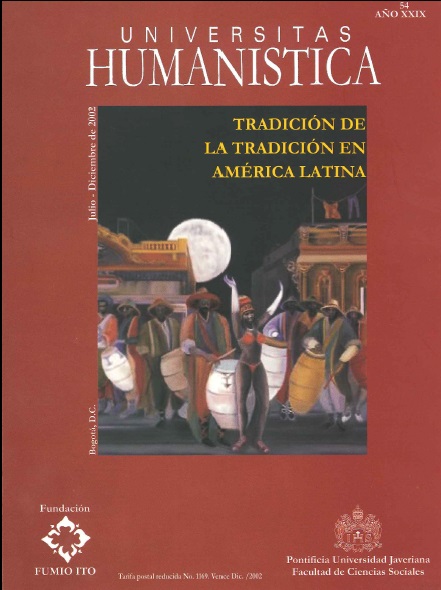Resumo
En la narrativa latinoamericana, el viaje a la selva, la pampa u otros lugares aislados es un tema frecuente que tiene significados variados. Puede representar una búsqueda de la autenticidad (el novelista argentino Cambaceres al final del siglo diecinueve, por ejemplo), un encuentro con una otredad radical no-occidental (el cubano Alejo Carpentier en Los pasos perdidos, 1953), o una confrontación con los peligros de una naturaleza salvaje y bárbara (muchos relatos sobre la selva producidos en varios países latinoamericanos).
Mientras estos temas no son ausentes al final del siglo veinte, autores como Álvaro Mutis han transformado el tema tradicional del viaje en el contexto de los paradigmas más recientes de hibridez, transcultura, migración, globalización y posmodernidad. Mi trabajo analizara la con respecto a la tradición literaria latinoamericana y reescritura del viaje al interior por Mutis y tratara de situarla los debates culturales contemporáneos.

A revista Universitas Humanística encontra-se registada sob a licencia Creative Commons Versão 4.0 Internacional. Portanto, esta obra pode se reproduzir, distribuir e comunicar publicamente em formato digital, sempre que dado o crédito apropriado para os autores e a Pontificia Universidad Javeriana. Permite-se citar, adaptar, remixar, transformar, autoarquivar, republicar e criar a partir do material, para qualquer fim, mesmo que comercial, sempre que indicado apropriadamente o nome do criador, provido um link para a obra original e indicado se mudanças foram feitas. A Pontificia Universidad Javeriana não retém os direitos sobre as obras publicadas e os conteúdos são responsabilidade exclusiva dos autores, os quais conservam seus direitos morais, intelectuais, de privacidade e publicidade.
O aval sobre a intervenção da obra (revisão, correção, edição, tradução, formatação) e a subsequente difusão disponibiliza-se através de licença de uso e não através de transmissão de direitos, o que representa que a revista e a Pontificia Universidad Javeriana são isentas de qualquer responsabilidade que puder se derivar de uma prática ética pobre por parte dos autores. Em consequência da proteção fornecida pela licença de uso, a revista não fica na obrigação de publicar retratações ou alterar informações já publicadas, a não ser que a errata seja decorrente do processo de gestão editorial. A publicação de conteúdos nesta revista não representa royalties para os contribuintes.


